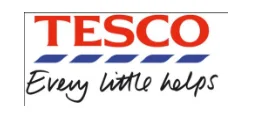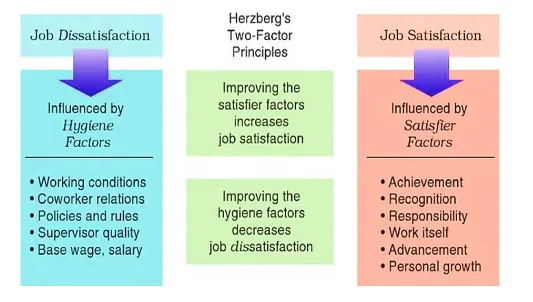HR Strategies for Tesco's Expansion
Introduction
Human resource management is the strategic approach of the organisation to strategise the Human Resource (HR) department and develop suitable planning to manage the employees and other staff members at the organisational workplace (Marchington et al., 2016). The employees are the major stakeholders of the business where it is the responsibly of the organisational leader to manage the expatriates at the workplace and fulfil the organisational aims and objectives successfully. The study focuses on discussing the HR policies and practice at the organisation Tesco, which aims to expand their business in the Asian continental and choose India for further successful expansion. The discussion of HR strategic planning and practice at Tesco further helps to identify the impacts of the strategic planning on managing the employees at India to run their business successfully. The study also provides a scope to recommend some suitable suggestions for the organisation Tesco so that it would be possible to develop further strategy to manage the Indian people at the workplace and retain them for enhancing organisational performance and gaining high competitive advantage in the Indian retail market.
Organisational background
Tesco is a British multinational groceries and general merchandise company, which focuses on delivering high quality products and services in the global retail industry to strengthen their customer’s base. It is the largest supermarket chain in the UK and third largest grocery store across the globe. The products are hypermarket, hypermarket and continence shop, where the customers can make effective purchase decision for daily necessities and other luxury retail items. Total numbers of location of the organisation are 6800 across the UK, Ireland, Malaysia, Thailand, Hungary, Poland and Czech Republic. The revenue of the company is the last year is £63,911 million and the total numbers of employees are 450000 (Tesco, 2020).

The company’s tagline is ‘every little helps’, where the organisation aims at setting effective process for their quality products, where Tesco can manage customer’s values and provide the products at affordable rate. There are also availability of the Tesco services such as Bank, mobile, and other financial services which are also efficient to retain the long run customers. The company aims at expanding their business in Asian continent and chooses the country India for its large retail market and string customer’s base. In order to run their business in India, it is necessary to hire the local people at the store and manage them in long run to enhance their performance, so that it would be possible for the organisation to gain high market share in Indian retail sector.
 h3Human resource strategic planning of Tesco
h3Human resource strategic planning of Tesco
Human resource management of the organisation provides a scope to the firm to manage their employee base and lead the people towards achieving future success. In this regard, for successful management of the human resource, there are creating functions which are, planning, staffing, developing, motivating, managing change, maintaining relationship, evaluating and appraising. These are the major functions, through which the company can retain long run employees. Tesco is also efficient to strategise their functions and improve the HR strategic planning to manage he employees oversees (Wood, Coe and Wrigley, 2016). The company also focuses on developing staffing strategy and motivating the people by fulfilling their needs and preferences in long run.

The company aims at recruiting through internal and external sources, where both are effective to hire the appropriate skilled workforce at the organisation to run their business strategically (Nankervis et al., 2019). Tesco develops the internal recruitment strategy by hiring the local employees, prompting the staff to higher position at the workplace, employee referral program and previous application. These are effective for Tesco where it hires the employees who know organisational culture and working practice. Hiring old employees for new position and employee referral program are effective to identify the potential workforce where the employees are knowledgeable about the working practice at Tesco. On the other hand, the company is also efficient to utilise the external sources of recruitment through job advertisement, word of mouth, employee exchange and employment agencies (Alam and Raut-Roy, 2019). On order to expand their business in India, the external recruitment and internal; recruitment strategies are important for Tesco. For higher position at the Indian Store, the company needs to focus on internal recruitment, where the employees and experienced staff are transferred in India to manage their operational activities. On the other hand, for employing the staff, sales representatives, front desk employees, employees for handling the stores, it is necessary for Tesco to utilise external recruitment strategy, where they can hire the local people in India. This is effective where the people can share their skill at the workplace and develop suitable culture according to the Indian Territory.

For selecting the candidates through external recruitment, Tesco focuses on arranging personal interview and identifying their potential to perform further at the workplace. Personality test and interview are helpful for Tesco to hire the local people in India where the senior management team is responsible to manage them and train them for enhancing the organisational performance (Brewster and Hegewisch, 2017; Awadari, and Kanwal, 2019). Apart from the recruitment and selection, the company focuses on the motivation of the people, engaged in the workplace, for motivational strategy, Maslow’s hierarchy of needs theory is applicable to identify the personal needs and preferences of the individuals at the workplace of the organisation. According to the hierarchy of needs, there are 5 needs of the people at the workplace, which are psychological needs, safety needs, love and belongings, self esteem and self actualisation (Awadari and Kanwal, 2019). The basic needs of the people are psychological needs such as food, shelter and water, clothing and reproduction and in this regard Tesco focuses on giving them proper monetary incentives and salary so that they can fulfil their basic needs and the salary structure is on the basis of the organisational post of the employees. Safety needs is also mandatory, where the employees expect to work in safe environment with proper security, healthy atmosphere and job security. These are mandatory for the employees to perform better. Tesco also re-establish their policies of employment, wage base and salary structure to create values for the employees.

Accordingly, love and belongings is also necessary where Tesco’s culture is related to developing proper corporate relationship with all the employees which are also the vulture of UK business. In this regard, the leaders at UK business try to develop friendly workplace and develop strong bonding, trust and loyalty among the employees to retain them for long run and in this regard the leadership style is participative. Additionally, self esteem needs and the need of self actualisation are also maintained at the UK business to retain the long term employees and in this regard, Tesco also focuses on respecting each people, giving them freedom to work at the workplace and the sense of connection, sense of achievement. Which further helps the company to strengthen their employee’s base and manage the employees oversees. Hereby, the organisations in the UK are capable of fulfilling the needs and preferences of the employees in long run. In this regard, there are some motivational factors and hygienic factors which are also effective to hire the local people and it can be demonstrated through Herzberg’s two factor theory. The motivational factors are achievement recognition, advancement, personal growth, working process and responsibility. The company Tesco in the UK is efficient to provide proper working culture at the workplace, with freedom and integrity, where the employees are encouraged to perform better. The leader of Tesco also is responsible to providing personal and professional growth and for this there is strong training and development program which are effective for the organisation. The leader is efficient to arrange the training program through online training and on the job training, where the employee scan learn through gathering experience and can attend the induction process of the organisation (DeCenzo, Robbins and Verhulst, 2016). This is useful for the employees to develop their personal and professional skill. Additionally, the leader is also efficient to improve recognition and encourage the employee’s creativity to manage them and improve their interest to take active part in achieving future organisational success.

On the other hand, the hygienic factors of the company Tesco are working condition, co-worker relationship, policies and rules, supervisor quality and basic wage and salary. The Company in this regard focuses on improving working condition by developing technical infrastructure as well as freedom to work and improve harmony at the workplace. The co-workers relationship is effective at the workplace, where there is high communication and cooperation which further influence the workers to perform better. Minimum wages Act 2020, as well as the implementation of Equality Act 2010 is effective for the organisation to manage equality and diversity at the workplace (Sparrow, Brewster and Chung, 2016). On the other hand, the company Tesco is efficient to manage health and safety of the employees, where they focus on providing insurance to the staff and giving discount for improving their wellbeing. These strategies are effective for the organisation to manage expatriates and local employees and lead them towards achieving future organisational success.
Organisational practice on joint venture in India
Through the Hofstede cultural model, it is effective to compare India and UK business culture. As per the power distance, both the culture of the countries score high which refers that there is power distance in the organisations and the leaders prefer hierarchical structure in managing the organisational operational activities. According to individualism, the score of UK is lower than India, which indicates that the UK business environment is friendlier and the leader is participative as compared to Indian business culture. Indian culture is more masculine than UK, and there is increasing numbers of male members hired in the organisational posts in India as compared to UK, where there is equal scope for both male and female to be recruited as per their skill and abilities.


As per uncertainty avoidance, UK score is higher than India, where uncertainty is being avoided in the business. Long terms orientation is also higher in the UK where the business firms and leader focus on achieving long term, goals. However, Indian business couture is more towards achieving short term, goals by creativity and innovation. Hence, the individual culture is slight different from the UK business culture and it is beneficial for Tesco to understand the culture of Indian and expand the business efficiently (Hofstede insights, 2020). In this recent era of globalisation, the aim of the company Tesco is to expand their business in India through merger and it is possible for the leader to utilise financial capital and invest more to establish the brand in Indian retail market. For such change, it is necessity for the leader to manage the change and lead the employees towards the achievement. For managing change, Lewin’s change management model is effective to understand the ways of leading the people towards working efficiently and fulfilling the organisational aims. As per the Lewin’s framework, there are three stages to change which are unfreeze, change and refreeze. Under unfreeze, the leader of Tesco, tries to determine the needs of change and share the necessary information with all the people at the place. This further helps to improve trust and loyalty among the people. Ensuring strong support to the employees, the leader is also directing where the organisational management team directs the employees with proper information and working practice to adopt the necessity change according to the Indian business culture (Armstrong and Taylor, 2020). For change management, the company communicates the activities during the change and involve all the people in the decision making practice so that they are engaged well and share their feedback and perception during the change. For refreezing, the company focuses on providing support and training and managing change to celebrate future success.

Hereby, the company is proficient to restructure their policies and working practice to capture the Indian culture and hire the local people for better management and enhancing organisational performance. In addition to this, Tesco also focuses on cooperation during the working practice and give proper assistance and support to each employee so that they can work better through gathering more information and skill. The online training program of Tesco and managing the feedback for the employees are also fruitful to manage the performance of the staff and support them with continuous feedback mechanism and evaluation for further enhancement of the organisational overall performance (Alam and Raut-Roy, 2019). The above mentioned strategies of human resource management at Tesco are beneficial for the leader and management team to expand their business at Indian market and hierarchy the local people for supporting the organisational operational activities. The recruitment strategy and selection process through interview and personality skill set evaluation will provide a scope to the HR management to identify the skilled workforce for the organisation, where the people can manage their responsibility and perform better (Bratton and Gold, 2017). Additionally, the motivational strategies including the monetary rewards and non-monetary incentives are also effective for Tesco to hire the local Indian people and manage them the strategies of Tesco are effective to create values for all the people at the workplace and lead them towards achieving future success. Strong employee base can be generated at the Indian market through the above mentioned strategic planning; the company is able to fulfil the personal needs and preferences of the employees (Awadari, and Kanwal, 2019). According to the Indian business cultural analysis, self actualisation and self esteem needs are also fulfilled by the Tesco management team, where there is recognition structure, continuous improve of the performance and sense of achievement at the workplace which further motivate the Indian people to work under proper organisational structure. Apart from that, the organisation is also proficient to maintain the structural hierarchy an there is continuous support from the senior management team which would also be helpful for the firm to retain the staff and improve their performance through providing support and direction at the workplace at India (Wood, Wrigley and Coe, 2017). The job security and health care safety at the workplace further influence the members to perform better and contribute positively in achieving the organisational success. Additionally, the change management process is also effective, where the leader and managers are proficient to value the employees and improve engagement for leading them successfully for successful joint venture in the new international country India. Strong corporate relationship, trust and loyalty among the people further enhance the performance, where the leader focuses on creating values for them and encouraging their creativity to perform better in future.

Conclusion and recommendations
It can be concluded that, the company Tesco is efficient to manage the expatriates oversees, where the HR policies and practice are contributing factors to hire the experienced staff and manage skilled workforce in long run. This is the major success factors, where all the employees are efficient to manage the customers and contribute positively to handle the organisational operations at the market. For successful expansion of the brand in Indian market, it is required for the leader to develop transformational leadership style to manage the Indian people at workplace. Organisational culture is another suggestion which needs to be developed at the workplace, where the manager needs to create values for the employees and develop emotional bonding, where the Indian people are finding of working in friendly atmosphere. Enhancing communication is also necessary where implementing ICT at workplace further helps the employees to be engaged with the management team and share the feedback as well. Moreover, the company needs to focus on managing cultural diversity in India, through providing cultural training to the expatriates as well as implementing non-discrimination strategic planning. Additionally, the company needs to manage transparency and accountability and treat all the employees fairly at the workplace of India and respect employee morale and fulfils the organisational commitment toward the Indian employees. Accordingly, Tesco needs to restructure their salary to retain the staff at Indian retail market as well as introduce performance related pay for better payment management. On the other hand, the company also needs to provide freedom to choose their working schedule so that the employees can be motivated to perform with their skill and full potential to maximise the organisational objective. As per the Indian culture, empowering the people at the organisational decision making behaviour is another approach of HRM which is required for Tesco to expand their business in India as empowering the staff increases their sense of responsibility and share their experience and strategy about gaining market share in India.
Reference List
Alam, S. and Raut-Roy, U., 2019. Evaluating the Effectiveness of Reward Strategy at Tesco: Evidence from Selected Stores in UK. Indian Journal of Industrial Relations, 55(1).
Armstrong, M. and Taylor, S., 2020. Armstrong's handbook of human resource management practice. London: Kogan Page Publishers.
Awadari, A.C. and Kanwal, S., 2019. Employee participation in organizational change: A case of Tesco PLC. International Journal of Financial, Accounting, and Management, 1(2), pp.91-99.
Chelladurai, P. and Kerwin, S., 2018. Human resource management in sport and recreation. London: Human Kinetics.
DeCenzo, D.A., Robbins, S.P. and Verhulst, S.L., 2016. Fundamentals of human resource management. New York: John Wiley & Sons.
Marchington, M., Kynighou, A., Wilkinson, A. and Donnelly, R., 2016. Human resource management at work. London: Kogan Page Publishers.
Sparrow, P., Brewster, C. and Chung, C., 2016. Globalizing human resource management. London: Routledge.
Wood, S., Coe, N.M. and Wrigley, N., 2016. Multi-scalar localization and capability transference: exploring embeddedness in the Asian retail expansion of Tesco. Regional Studies, 50(3), pp.475-495.
Wood, S., Wrigley, N. and Coe, N.M., 2017. Capital discipline and financial market relations in retail globalization: insights from the case of Tesco plc. Journal of Economic Geography, 17(1), pp.31-57.
- 24/7 Customer Support
- 100% Customer Satisfaction
- No Privacy Violation
- Quick Services
- Subject Experts



